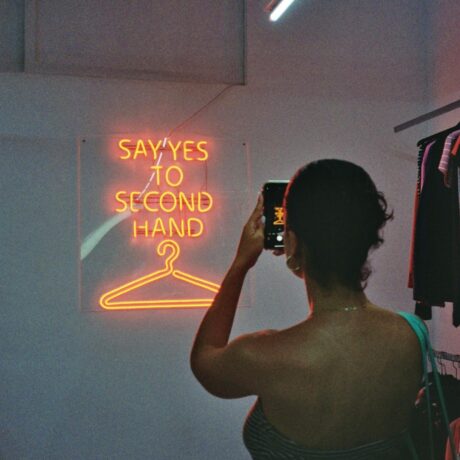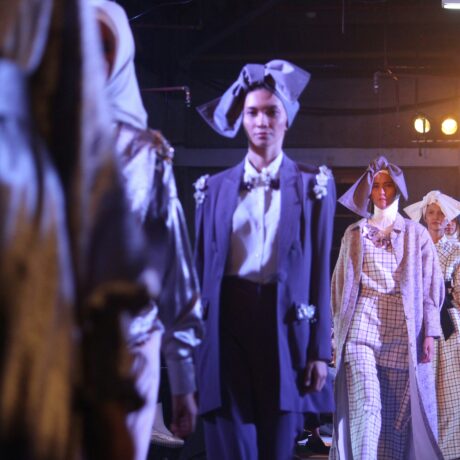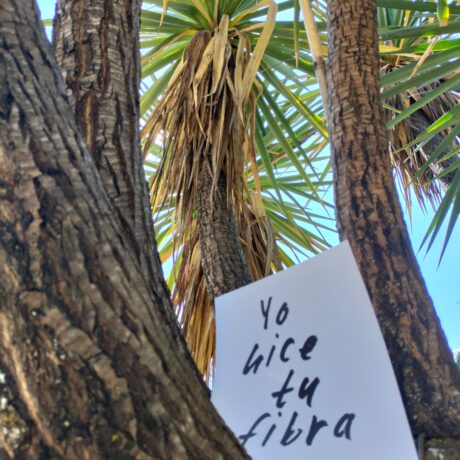The Appropriate Revolution
The most remarkable thing about Fashion Revolution is that in every participating country, now 71, it is run on the strength, determination and creativity of volunteers. Everyday people who believe in making the fashion industry accountable. There are no big promises as are often attached to campaigns, Fashion Revolution simply seeks to add a voice for the workers in the rag trade industry by asking a simple yet profound question; do you see me? Do you hear me? And this is what 2015’s hashtag #whomademyclothes is all about.
An article recently posed the question ‘can a hashtag make a difference?’ This is the final countdown leading up to Fashion Revolution Day, there certainly was excitement in the air this week when from just a simple hashtag an entire country caught the vision of the movement and wanted to get involved. Through a tweet I sent out, we were able to get and entire country, Ghana on board and to join the global family of Fashion Revolution.
Speaking of twitter, it’s good to see brands coming forward and explaining where their clothes are being made. There are brands that are tweeting Fashion Revolution with details of who makes their clothes. Transparency is winning!
In South Africa, we have had Glamour, Elle and Marie Claire magazines adding their voices behind this revolution. Our fashion councils, both local and national have been supporting the South African team for months leading to the very day. Fashion bloggers have also backed our voices and spread the word. If you have any doubts that a hashtag can make a difference, let me put your doubt to rest. Yes, a hashtag can and IS making a huge difference!

I like to call it the appropriate revolution. Fashion is often referred to as a frivolous industry while we may be carefree, superficial, most certainly not! You see it is this ‘frivolous’ industry that is standing up, in an appropriate way, and asking the powers that be to pay workers better salaries, to give them better working conditions and to get consumers to become aware of where their clothing comes from. After all, Fashion Revolution was born out a disaster when on 24 April 2013, 1133 people were killed and over 2500 people were injured when the factory at Rana Plaza collapsed in Dhaka, Bangladesh. It’s appropriate as every time I use the hashtag, it’s in memory of those that lost their lives. I will admit that our fashion supply chain has a long way to go but Fashion Revolution is bringing attention to this ‘frivolous’ industry and people are being made aware of what happens behind closed doors.
Our team in South Africa has been working for months leading up to Fashion Revolution Day and the engagement has been extremely positive. It takes time to get results but for right now, people are talking and the message is out there. It’s not about pointing fingers and exposing brands, it’s simply in changing attitudes and practices within companies.
Do you know where your clothes come from? Take the time and read the care label. Get inquisitive. It was Mahatma Gandhi who said very poignantly ‘Be the change that you wish to see in the world’.
I hope that you will add your voice this year.
It is simple – people matter.
Cyril Naicker is passionate about South Africa’s clothing and textile manufacturing sector and supports wearing proudly South African.









